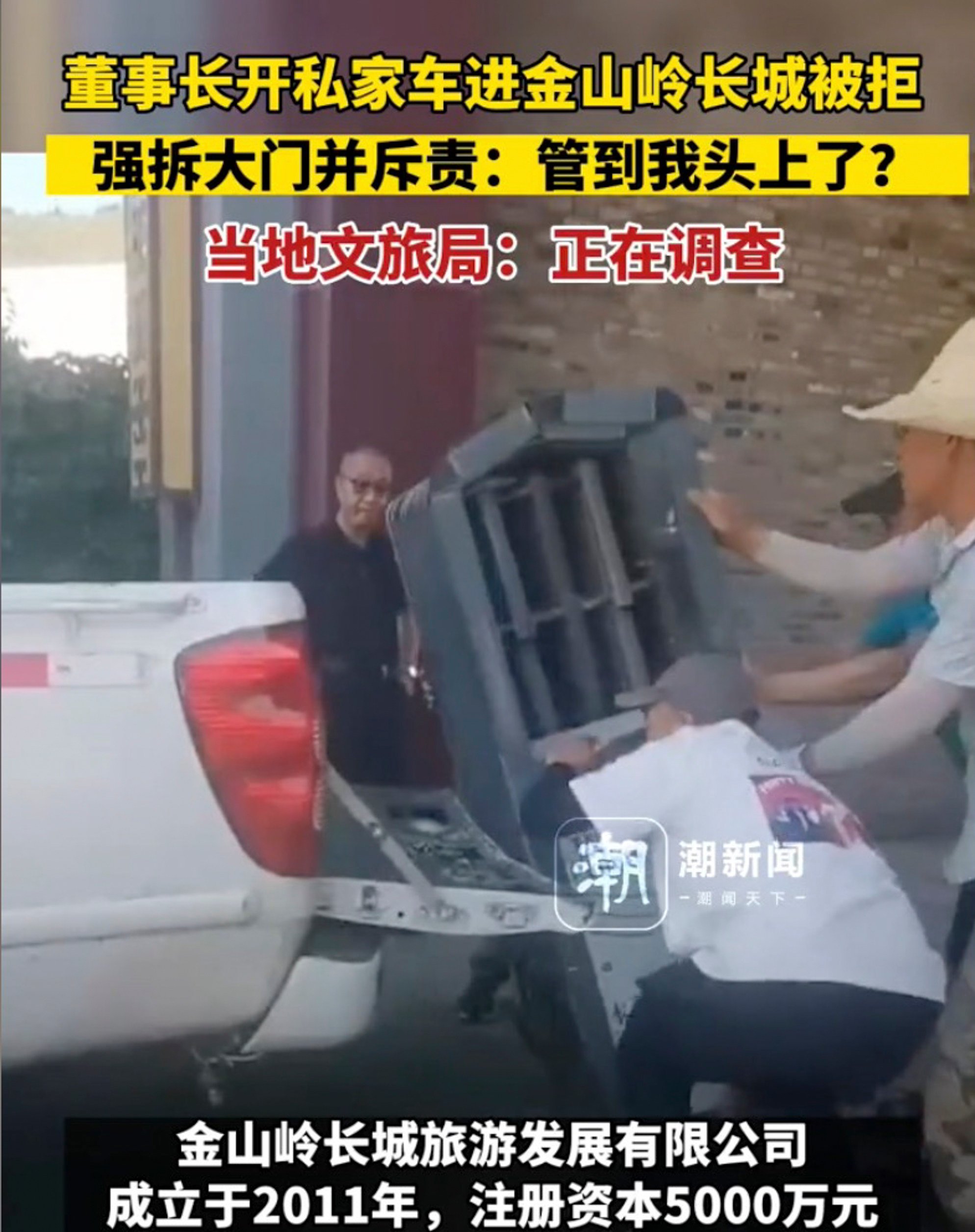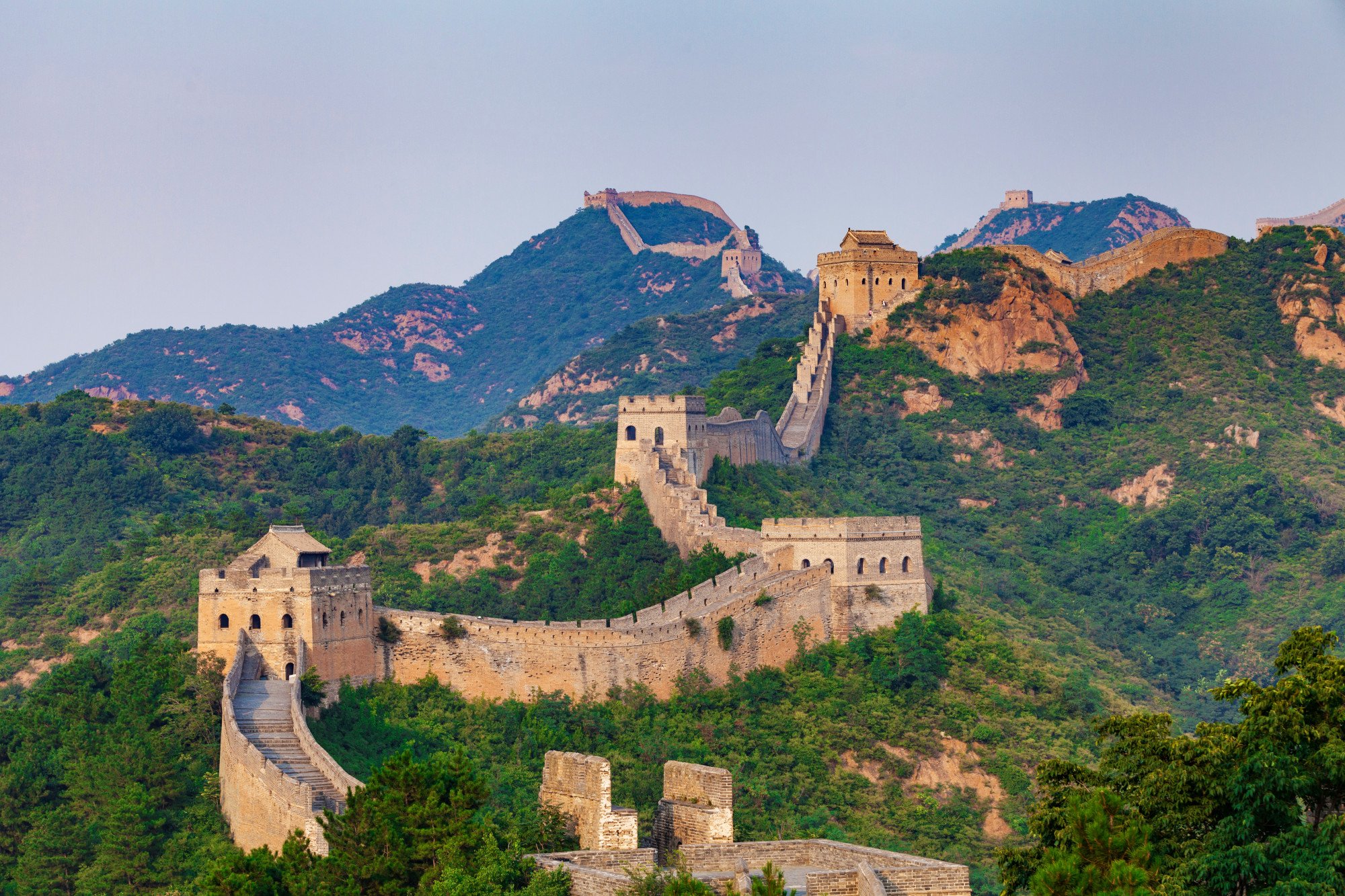Controversy surrounds online video which purports to show Great Wall management company boss displaying ‘unacceptable’ behaviour. Executive faces criticism for ‘trying to exert privilege’ by social media observers as local tourism chiefs confirm probe is under way. — SCMP
A senior executive from a state-owned company which manages a section of China’s Great Wall is facing accusations – and online anger – over his alleged behaviour towards security guards who refused to let him enter a resort.
The controversy surrounds an online video filmed on June 22 just north of the capital Beijing which shows an incident involving Wu Chengwang, the president of the Jinshanling Great Wall Tourism Development Company.
In the video, Wu appears to be ordering people with him to push over a sliding gate blocking his vehicle and saying: “How dare you stop me. I can push it all over if I want to.”
According to Chinese media outlet The Paper, Wu tried to drive into the resort through an emergency fire exit.
A resort employee told the Xin Kuai Bao newspaper that no one is allowed to drive into the resort.
The Post has reached out to Wu for comment directly but had received no response by publication time. However, a local tourism bureau said on June 23 that the incident was being investigated.

A legal representative from the company, Zhu Yongli, played the matter down, saying that Wu had only tried to topple “an ordinary sliding gate which belongs to the company”, not an historic part of the site.
Some online observers said it was not about any damage that was done but Wu’s “sense of privilege” and alleged “unacceptable behaviour” that was the problem.
“I wonder if he would push over the Great Wall if he was unhappy one day,” one person wrote.
Others online said the scene reminded them of an incident in 2020 in which two women tried to drive a luxury SUV into Beijing’s Forbidden City, where vehicles have been banned since 2013.
It was later revealed that one of the women was a relative of a senior official.

The Jinshanling section of the Great Wall, located in northern China’s Hebei province, spans 15km (9.3 miles) and was built in the Ming dynasty (1368-1644). It is listed by the Chinese government as a major historical and cultural site protected at the national level.
The section is co-managed by at least one other organisation, the Jinshanling Great Wall Cultural Heritage Management Office, according to a report in Shangyou News.
It is not the first time that the Jinshanling Great Wall Tourism Development Company has made headlines.
In 2005, several Chinese media outlets reported the site had been used as an illegal venue to host “bawdy” rave parties.
An inspection team from China’s National Cultural Heritage Administration later discovered that the parties were held by a private company which had rented the site from another company, Guangda.
In 1997, Guangda paid local authorities 5.16mil yuan (RM3.33mil) for a 50-year lease. Investigators later declared the lease invalid under a 2002 amendment to the Cultural Relics Protection Law, which specified that cultural relics should not be managed as company assets.
Following the rave party scandal, in 2006, the Chinese government introduced the Great Wall Protection Regulations, which cover all aspects of the 20,000km-long Great Wall and its cultural heritage. – South China Morning Post





